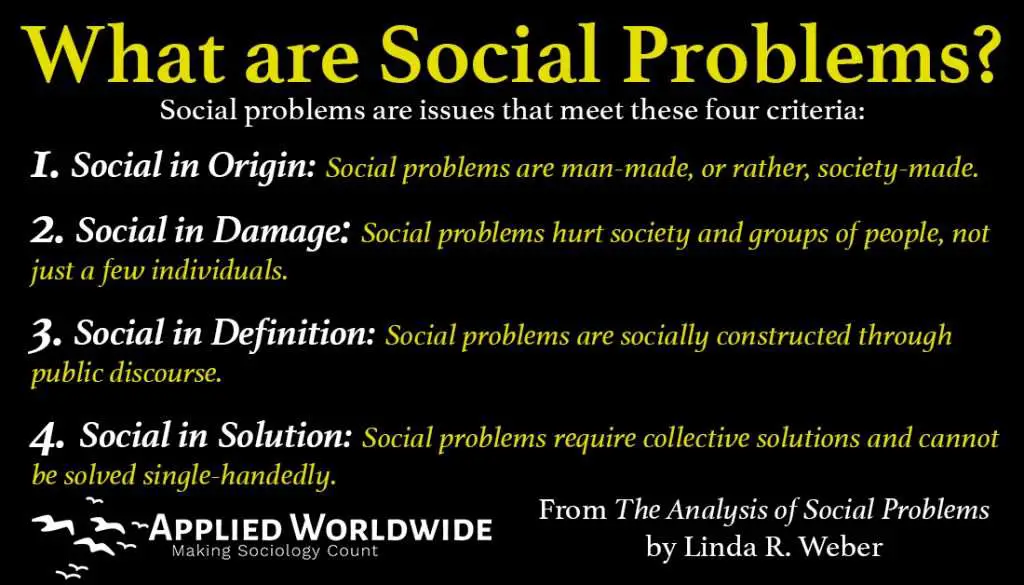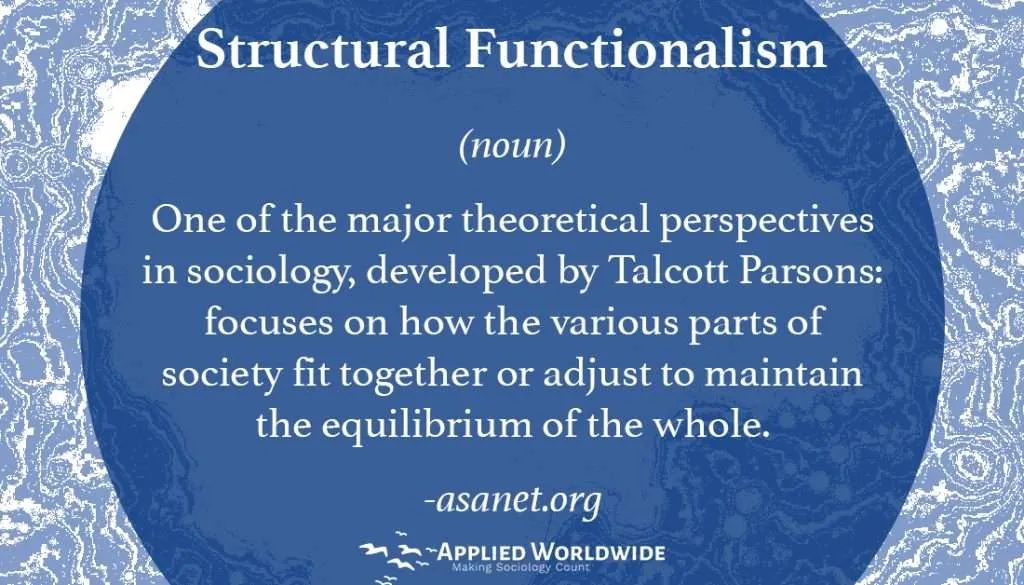Can we use sociological theories to help prevent domestic and intimate partner violence?
Sociological theories are often grouped into the “Big Three”: Conflict Theory, Structural Functionalism, and Symbolic Interactionism. Each of these theories posits its own view on preventing domestic violence. In this article I define language such as ‘violence’ and ‘domestic violence,’ demonstrate how domestic violence is a social problem, outline the different sociological perspectives, and summarize sociological solutions.
What is Domestic Violence?
Violence is the use of physical and extreme force. In a 1999 book on school bullying, experts state that violence/violent behavior is “an aggressive behavior where the actor or perpetrator uses his or her own body as an object (including a weapon) to inflict (relatively serious) injury or discomfort upon an individual.” Additionally, in a 2017 article, Hamby noted that a comprehensive definition of violence includes 4 essential elements, including behavior that is:
- intentional,
- unwanted,
- nonessential, and
- harmful.
Hence, one can conclude that violence is the intentional, harmful and unwanted societal behaviour perpetrated by a person or group of people that may result to physical, sexual, psychological or emotionally abuse. Therefore, if the above is carried out at home or in an intimate relationship, it is called domestic violence.
Further Defining Domestic Violence
Domestic violence is defined by the National Domestic Violence Hotline as a forced “pattern of behavior in any relationship that is used to gain or maintain power and control over an individual.” Domestic violence is further defined as physical or sexual violence within the family. According to researchers Etter and Birzer, this includes sexual abuse of children and physical abuse of elderly parents. Domestic violence occurs without regard to race, age, sexual orientation, religion, or gender. It matters not if one comes from upper-, middle or lower-class families. This means that domestic violence is neither race, gender, age, class or religion specific.
Sociology and Domestic Violence
Sociology is the study of society, human social behavior, patterns of social relationships, social interaction, and culture that surrounds everyday life. Therefore, domestic violence should be at the center of attention for sociologists. That is, sociologists should be able to provide reasons and genuine solutions that can prevent this social problem in our society.

From a sociological perspective, domestic violence is a significant social problem in the world and sociologists have created the term intimate partner violence (IPV) to include unmarried, cohabitating, and same-sex couples, family. Domestic violence has reached an alarming stage in our society. “In the United States, it is estimated that between two to four million women are victims of domestic violence every year.” This quote means every 18 seconds someone is a victim of domestic violence. A 2007 research study from Etter and Birzer determined that while approximately 80.8% of accused abusers were, only 19.2% were female. These findings show that while women do abuse, most often the abusers are men.
Frankly speaking, researches have shown that women are the primary victims of intimate partner violence. In 2007, Catalano estimated that one in four women has experienced some form of IPV in her lifetime (compared to one in seven men). For this reason, conclusion can be drawn from Boss, Doherty, LaRossa and Steinmetz’s 1993 study that domestic violence is a rampant social issue and since women are assumed to be the weaker gender in the society, majority of them are the main victims of domestic violence. The magnitude of domestic violence executed on women is more damaging than the type of abuse executed by women.
Sociological Theories of Domestic Violence
Theory is a supposition or a system of ideas intended to explain something, especially one based on general principles independent of the thing to be explained. That is, it tends to explain how and why something or someone came into being. With this, there are three main sociological theories that tend to provide a vivid understanding of the reasons behind domestic violence. The theories are:
- Symbolic interactionism theory,
- Social conflict theory, and
- Structural Functionalism Theory.
Symbolic Interactionism Theory
In their 2008 article, Lehrner and Allen postulates that domestic violence arises when partners in a relationship fail to understand each other’s symbols and meanings. In symbolic interactionism theory, it is very important for the two partners to share symbols and meanings in marriages. When there is a disruption in shared symbols and means, domestic violence may occur.
According to this theory, partners who do not understand each other or forcefully got married may be at a higher risk of resulting for domestic violence in their marriage.
Social Conflict Theory
Chibucos and Leite’s 2005 book on family theory explains that domestic violence occurs in an intimate relationship when one partner possesses more resources than the other partner, so as to compensate for one’s wounded ego, the hurt partner usually resort to violence. Boss and colleague’s 1993 study further buttressed the theory when they opine that marriage that can be seen as a social institution contains a variety of resources that may not be equally distributed. Some of the resources include job, talent, repute and money.
If one partner lacks resources, a sense of inferiority complex may arise for that partner and lead to conflict in the partnership. When the conflict intensifies, it results in abusive behavior.
Structural Functionalism Theory
This theory believes that domestic violence occurs when there is a change of role in the family or relationship. According to structural functionalist theory, men hold instrumental position in society while women are expected to fill expressive roles. Structural functionalist theory holds that this arrangement works well to the benefit all of society when the gendered roles are maintained. Eaton, Davis, Barrios, Brenner, and Noonan’s 2007 article further explains that according to the structural functionalist theory, most of the abusers are men and they believe that it is their responsibility in society to make sure that their women are kept in line.

Domestic violence occurs when women strive to occupy instrumental roles that are meant for men. At the moment, one can see that there are many women within the labor force despite the fact that men still seem to possess more wealth and ideological authority than women. Keeping this in mind, domestic violence is considered to be a technique of exercising control and also maintaining power usually used by men.
Sociological Solutions to Domestic Violence
The sociological solutions will be provided by addressing the three sociological theories behind domestic violence. That is, the need to critically study the theory will bring everlasting solutions to domestic violence
Symbolic Interactionism Theory
Since the theory focuses more on the need for the partners to understand the signs and symbols of each other, partners in an intimate relationship have to apply symbolic interactionism so as not to only understand other people’s point of view but to also understand other people’s symbols and meanings. In short, both the partners need to be on a common ground or always work on how to always achieve a common ground.
Perhaps, that is why Wolitzky-Taylor and colleague’s’ 2008 meta-analysis asserts that when two partners in a marriage understand each other’s symbols, they ultimately have a mutual understanding and know each other better. Therefore, they will have no reasons for domestic violence in their relationship or marriage. The partners in a relationship learn about themselves and form personal feelings founded on they react to each other when they interact with each other.
Lastly, the society needs to shun the idea of forceful marriage because marriage that is not based on love and affection has high risk of resulting to domestic violence.
Social Conflict Theory
The perfect understanding of this theory will bring about peace and contentment. The partners must know that they are one. That is why they are called better half. Another analogy of their single entity can be seen when they are being joined together as one on one on alter. This means that possession of resources should not predict their behavior. Men need to understand that the kind of ego that follow resentment and jealousy only destroy relationships and families. It is better to let go of egos and have a peaceful family as an entity than to uphold egoism that can destroy and shatter one’s family.
Also, it will allow the partners to understand that resources in marriage are not for the sake of competition. The desire to acquire wealth more than ones partner should be suppressed. The partners should work together to ensure that they meet the target of the family.
Structural Functionalism Theory
According to the theory, the society has designated roles for the genders in a relationship or marriage. However, domestic violence usually arises when the roles are substituted. Perfect studying of this theory will give the partners an insightful knowledge that families different from society to society and these rigid designated society roles should not take from the peace of the family.
In a situation where the roles of men are being carried out by women in marriages, it should not be a source of violence, rather the men should provide physical, psychological and emotional support for the smooth running of the family not physical, psychological and emotional abuse that will destroy the family or relationship.
Final Thoughts on Preventing Domestic Violence through Sociological Theory
In conclusion, domestic violence cannot promote the well-being of human societies and it must be totally condemned to avoid generational domesticated violence. Children who grew up where domestic violence was the order of the day will think it is normal to abuse or forcefully subjugate ones partner either psychologically, emotionally, physically or financially. All members of the society must work together in harmony to make sure that this anomaly becomes history.







